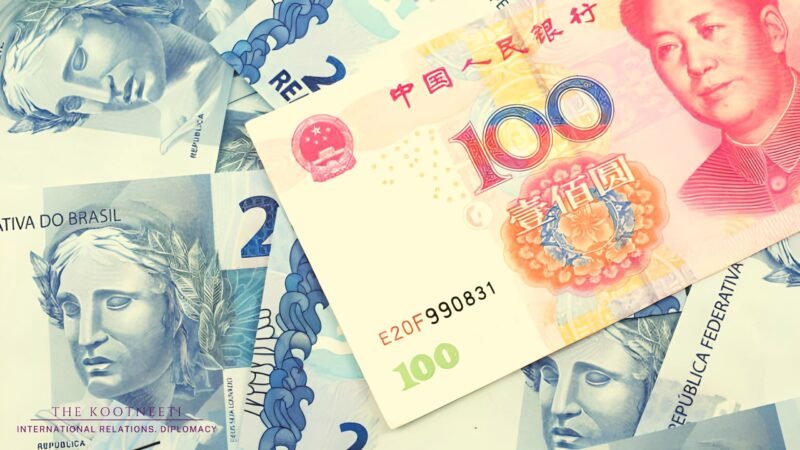China-Brazil Trade Deal Ditches US Dollar as Intermediary: Why It Matters

China and Brazil have announced a new trade deal that allows them to trade directly in their own currencies, bypassing the US dollar as an intermediary. The deal is expected to reduce costs, promote greater bilateral trade, and facilitate investment.
The Brazilian Trade and Investment Promotion Agency (ApexBrasil) released a statement indicating that the agreement will enable China, the top rival to US economic hegemony, and Brazil, the largest economy in Latin America, to conduct their massive trade and financial transactions without having to exchange currencies through the US dollar.
China is currently Brazil’s largest trading partner, with bilateral trade worth $150.5 billion in 2022. The deal, which was preceded by a preliminary agreement in January, was announced after a high-level China-Brazil business forum in Beijing. Officials stated that the Industrial and Commercial Bank of China and Bank of Communications BBM will execute the transactions.
China has similar currency deals with Russia, Pakistan, and several other countries.
Why it matters?
Trading in own currencies means that two countries agree to conduct their trade and financial transactions using their respective currencies rather than relying on a third currency, such as the US dollar, as an intermediary. In the case of China and Brazil’s new trade deal, they will be able to exchange yuan for reais and vice versa directly without having to go through the US dollar.
This agreement will provide several benefits for both countries. A few of them are:
- It will reduce transaction costs by eliminating the need for currency conversion fees that are typically charged when exchanging one currency for another. By using their own currencies, China and Brazil can avoid these additional costs, making trade and financial transactions more efficient and cost-effective.
- The agreement will promote greater bilateral trade between the two countries. By removing the need for a third currency, the transaction process is streamlined and simplified, making it easier for businesses in both countries to engage in trade with each other. This increased trade could lead to more economic growth for both countries.
- The agreement will facilitate investment between China and Brazil. By conducting transactions directly in their own currencies, investors will have more confidence in the stability of the currency exchange rate, which could encourage more investment flows between the two countries.



















